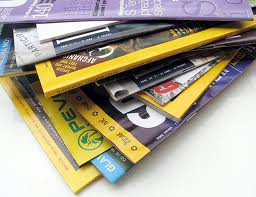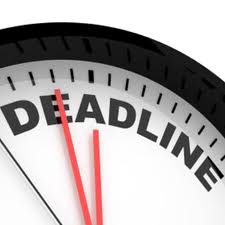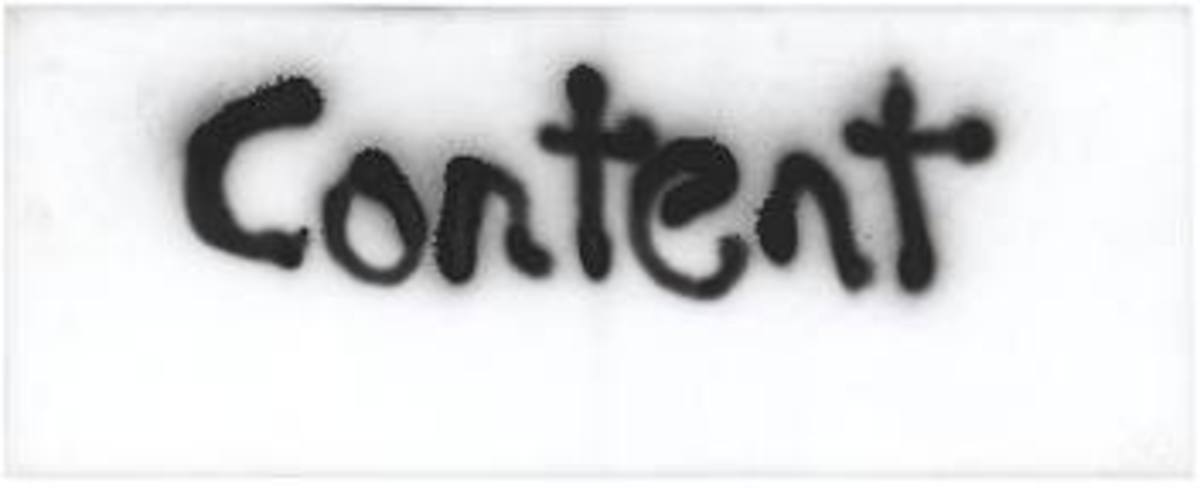What Makes a Good Writer?
Learn How to Meet Your Editor's Expectations

How to Make Your Editor Love You!
If you're a writer, you've probably been angry, frustrated, confused or intimidated by editors from time to time. And that's just on the good days. Fear not; editors are people, too, and here are some tips to help you win their trust. And win a few new assignments, while you're at it.
To work well with an editor, you have to be a good writer, be willing to learn from your mistakes, have thick skin when it comes to editing and understand the needs of the publication (and those of the editor).
Here's how to get on the good side of your editors:
Get Familiar With the Publisher's Content and Style

What Are the Editorial Guidelines for the Website or Publisher?
Pay attention to the website or publisher (magazine, book, newspaper) and the focus of its content. How long is the average article? Do they use different writers every month, or does it appear they may have room for new blood? A little research will help you lay the groundwork for a successful pitch.
1. Read Back Issues: Check the web, local library or other places where the publication might be found. Some smaller publications may not be in libraries or be distributed; if you can't find old issues, ask the editorial office (if it's in your city) if you can pick up a few back issues. If the publication is distributed for free at various places, see if someone will hold old copies for you to pick up when you're there. The best way to target a publication is to get to know what they print.
2. Check Their Website for Writers' Guidelines: Most websites or publishers will post writers' guidelines, to help avoid confusion and to save time. These are not just taking up space on their server; these are the expectations editors have for content, style and length. Many guides will also give style tips, such as whether they want double spaces between sentences, or whether you should write email vs e-mail. Your goal is to turn in copy they will want to print. Typically, what they want to print in the future will resemble what they've printed in the past. If no guidelines are published on the website, ask the editorial office for them. This shows you're a professional, and that you want to please them.
3. Read Similar Websites or Publications: This will help you see what's different in the one you're targeting and it will give you ideas for stories printed in the genre.
4. Ask What Themes are Planned for the Future: The themes (also called the 'editorial budget,' in some cases) will give you ideas on what to pitch for future dates or issues. Some publications happily share themes for the next 6-12 months; some do not. It won't hurt to ask, though.

Pitch Your Story!
Generate Story Ideas: Editors need an ongoing source of ideas in order to fill their pages. In newspapers, there's often a daily meeting to wrap up the content plans for the next issue. Magazines generally have themes for upcoming months, but editors often scramble to get content that supports the theme. At the same time, editors want 'evergreen' stories, so they'll have something in the bank for future issues if space is tight one month.
How to Pitch a Story: Find out how the publication wants you to contact them. Most will want a written pitch, probably in email form. Summarize the story briefly, with perhaps a clever title suggested to give it appeal. Here's an example:
- Holiday Fun on a Budget (story and sidebar): Tips for holiday gift-giving, entertainment and family fun on a tight budget. The sidebar will give examples for budgets of various dollar amounts. Photos available if desired.
The above pitch could get you an assignment for a story, plus payment for a small sidebar and photos. By adding extra value to your pitch, you can also get extra income.
Have a Well-Developed Idea of the Story Before You Pitch: As the above example shows, the writer states the types of things that will be covered in the story but doesn't go into great details. The word "I" does not appear. Don't give editors and 'all about me' dialogue in your pitch. Just talk about the story, not yourself. If you need to establish credibility for the topic (let's say it's organic gardening), you can add a short (very short) statement about why you're qualified to write about it, such as, "I've been an organic gardener for five years and I'm thoroughly versed on local methods that work."
What to Avoid: Whatever you do, don't just call up an editor and say you'd like to write for their publication with no story to pitch. Everyone wants to write these days (about a quarter million people on this site alone). Editors get contacted by eager writers all the time; a writer with good writing skills who has a solid pitch that fits the publication has a real chance of getting an assignment, and even an ongoing gig.
Excellent Book for Writers
Write Well and Meet Deadlines!
Clean Up Your Copy: Be sure you turn in copy that is free of errors! Follow the writers' guidelines and make certain to do a thorough spelling check electronically as well as visually. Many words get by the software because they're spelled correctly, but they're the wrong word for the sentence.
If you're used to writing as you would on Facebook or a blog, or you Tweet all day long, you might have to retrain yourself to write in the style traditionally used in newspapers and magazines. Several good hubs on this site have tips for improving your writing.
Meet the Deadline! Editors literally get ulcers waiting for copy to be turned in. A lot of work has to be done before your story will appear in print (or even online). The story must be edited, cut if it's too long, graphics or photos need to be found and the publication has to go through layout. Being late for your deadline will irritate the editor and reduce your chances of getting future assignments.
Learn From Your Mistakes: The advent of electronic editing has been great for speed but not so great in helping writers to improve their work. Watch the newsroom scenes in "All the President's Men," and you'll see the editors read paper versions of stories submitted by Woodward and Bernstein, and then make marks on the papers before returning them. While this was slower, it also built skills in both the writer and the editor. Writers had to go back and manually enter in corrections or rewrite awkward sentences. After a while, it was easy to spot repeated errors, learn from them, and improve your writing.
Pay attention to any editing changes made to the finished product after publication, and learn from those changes. As another exercise, find a friend who has a sharp eye for errors and a good feel for writing styles, and ask them to read through your stories and mark (with a red pen, not on the computer) any errors, clumsy sentences or other areas where you can improve.
Writing is like playing the piano or ice skating - you have to study it to learn the rules, and you have to practice it to do it well. If you're able to write well, and if you meet deadlines and turn in interesting stories, editors will keep using you and you'll build a great portfolio of published clips.
Time is valuable to your editor

How to Earn Money Writing Online Content | on HubPages
Unless you just love sitting in front of your computer all day, churning out words, you're probably reading this to learn how to make money as a writer. There are several sites where writers can publish content and share revenue; HubPages is one of them.
There are many ways to earn a living as a writer, and as you grow in that career, you'll learn how to convert one assignment into two or more stories, which increases your income from one piece.
You may want to be a consultant and write for small businesses (which, interestingly, often need the skills of writers), or you may want to jump into freelance writing on a full-time basis.
As this article emphasizes, it's important to pay attention to what your editors want. And if you're writing for an online site, you can also hone your skills by learning why content gets flagged or reported on the site where you write. There are many common mistakes writers make, and the more you practice, the better you'll do in the next piece, and the next, and the one after that . . .









